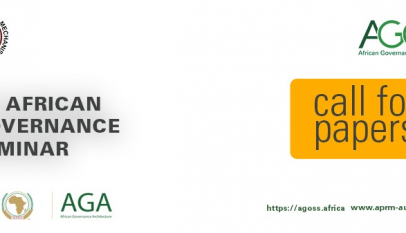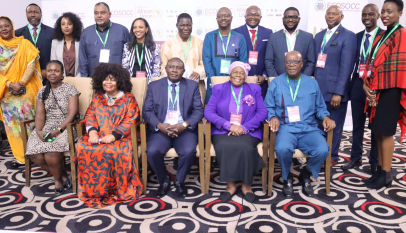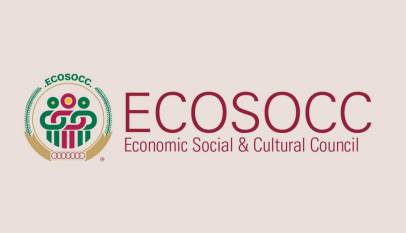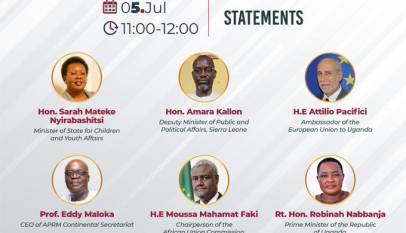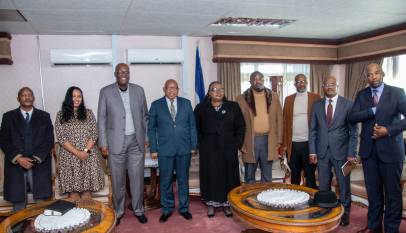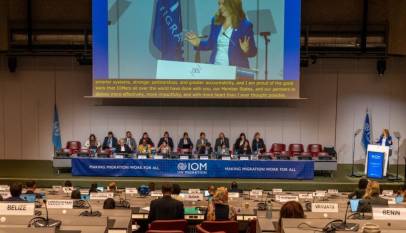30th APR Forum welcomes 41st member, Democratic Republic of Congo
The 30th African Peer Review Mechanism (APRM) Forum of Heads of State and Government virtual meeting, under the chairmanship of President Cyril Ramaphosa of South Africa cum chairperson of the APR Forum, Thursday welcomed the Democratic Republic of Congo (DRC), as the 41st African Union member state to accede to the APRM.
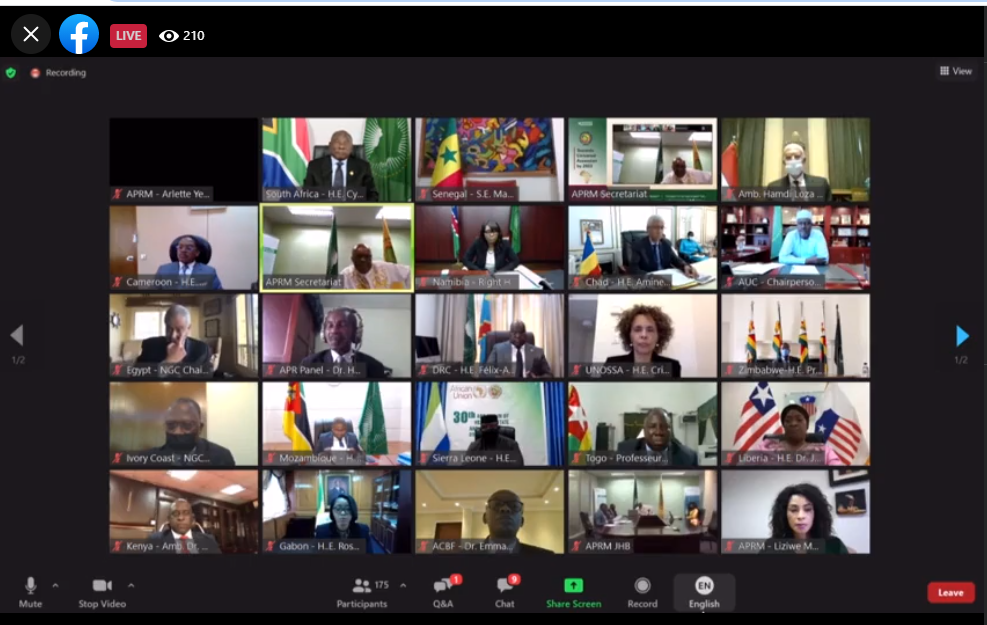
The APRM is the AU’s self-assessment instrument whose mission is tracking of the implementation of the Union’s key governance initiatives including monitoring and evaluation of Agenda 2063 and Agenda 2030. Whereas the APR Forum, the highest decision-making body in the APRM, is the Committee of Participating Heads of State and Government of the Member States of the AU who have voluntarily acceded to the Mechanism.
While formally announcing DRC’s accession to the APRM, President Félix Tshisekedi, who is also the current chairman of the AU, said the DRC’s decision to accede to the Mechanism was inspired by the realization that, in addition to socioeconomic indices, the country’s development depends on the promotion of good governance practices namely, rule of law, human rights and the fight against corruption and impunity.
“By presenting its candidature, the Democratic Republic of Congo undertakes to fully take part in all discussions on governance. By joining the APRM, we hope to get the support of our peers in the review of our practices regarding good governance, which is the pre-requisite for development and entrenchment of rule of law,” President Tshisekedi said.
In his opening remarks, President Ramaphosa said although the Covid-19 pandemic had placed systems of governance and service provision under significant strain, the APRM had attained greater significance in promoting the AU’s shared values of democratic governance and inclusive development, in the previous year. “In the last few months of 2020, our Mechanism made several notable achievements despite the disruptive effects of Covid-19.”
In a separate remarks, chairperson of the AU Commission Moussa Faki Mahamat said, since its establishment in 2003, the APRM had proven to be an essential tool for facilitating good governance in Africa, noting that, despite its recent integration into the AU architecture, the Mechanism still retains its independent and autonomous character which guarantees its efficiency.
“The Mechanism has fostered open and frank discussions on good governance in several African countries. Therefore, creating new spaces for citizens’ participation in public affairs, with 41 members having acceded to it, the APRM has gained a leading stature in the AU architecture. I therefore urge the remaining AU Member States to speed up their accession process in order to achieve universal accession by 2023, in accordance with the First Ten Year Implementation Plan of Agenda 2063,” urged Mahamat.
President Mokgweetsi Masisi of Botswana said his country’s accession to the APRM in February 2019 was a clear demonstration of their commitment to the ideals of the AU’s promotion of the culture of democracy, good governance, rule of law as well as respect for human rights and human dignity, adding that governance was fundamental to Africa’s sustainable development.
“I also wish to commend the APRM Secretariat for producing the Second Africa Governance Report (AGR 2021). We have noted with keen interest the issues covered by the Report and recommendations therein. These include the promotion of African indigenous knowledge systems in the areas of agriculture, medicine and education, the promotion of cultural diversity as well as the engagement of women and youths in the development and peace processes of our countries,” noted President Masisi.
President Masisi’s Sierra Leonean counterpart, Julius Maada Bio, believes whereas Covid-19 had slowed down Africa’s development process, “It shouldn’t dampen our resolve to consolidate accountable democratic governance, maintain peace and sustain our drive to attain inclusive development.” Sierra Leone was the subject of APRM’s health governance and covid-19 response targeted review in the end of 2020.
“This [targeted review] report is not only about shaping our success story as a nation; it is about discussing candidly the drive to continue doing even better for the sake of our nation and its people. Evidently, this targeted review will form the ensuing national programme of action for strengthening our capacity to deal with future public health emergencies as a country, and also serve as basis for overhauling our health sector,” he vowed.
In his goodwill message, President of the African Development Bank (AfDB), Akinwumi Adesina, said the Bank remained strongly committed to the APRM, as its strategic partner. He decried the fact that the Covid-19 pandemic had slowed down Africa’s economic growth calling for urgent action regarding improved access to Covid-19 vaccines as well as what he called African countries’ alarming debt.
“To grow African economies back, bolder and better, there must be financial and economic stability. It is now time to put in place an African Financial Stabilization Mechanism to protect Africans from the massive impact of exogenous shocks on our economies,” urged Adesina. “Africa will recover but that recovery will require much strengthened governance at all levels including decisive actions to end illicit capital flows and ensure more transparent governance over the management of Africa’s vast natural resources. The better we govern ourselves, the better the lives of the governed people of Africa.”
Amongst others, the 30th APR Forum had conducted the peer review of Liberia; discussed the reports of the targeted reviews of Sierra Leone and Zambia; as well as receiving briefing on Sudan’s governance gap analysis and update on the progress of Nigeria’s second review process. Having been revitalized over the last five years, the APRM continues its drive towards accession by all AU member states. During this period, the Mechanism had successfully moved from the periphery to the centre of the AU’s governance architecture.


